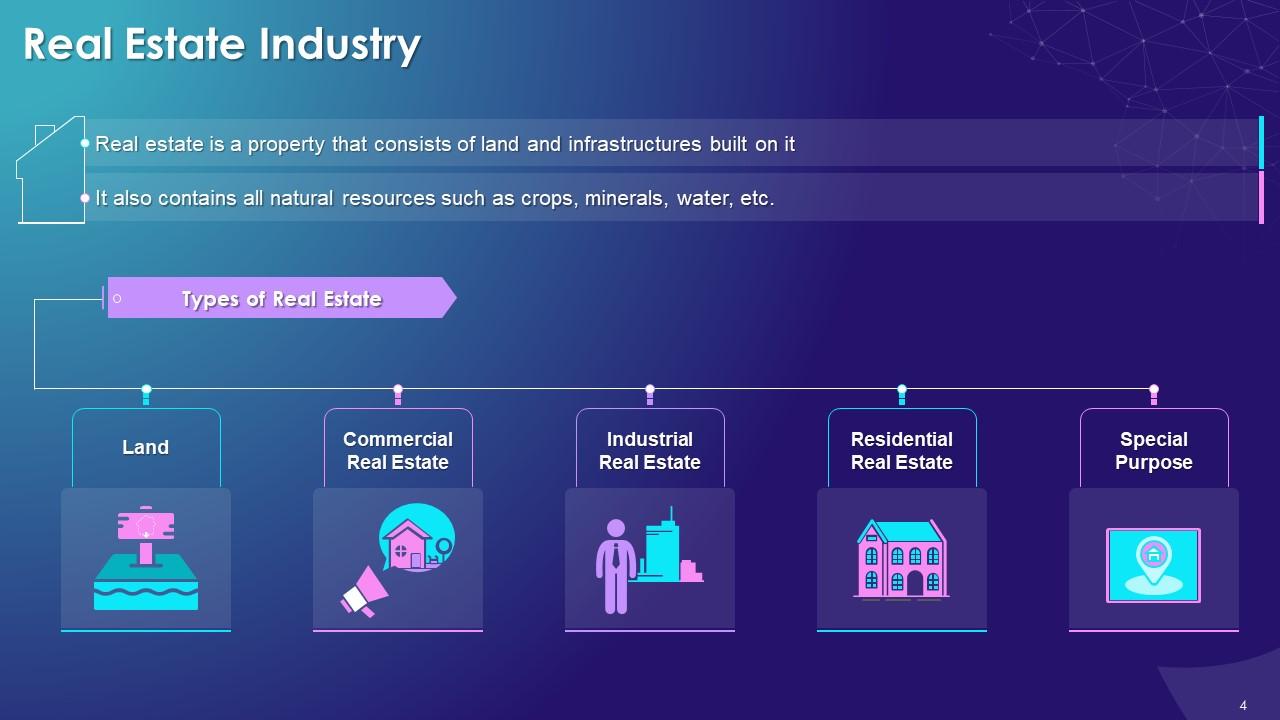Blockchain Applications in Real Estate

- Introduction to Blockchain Technology
- Benefits of Using Blockchain in Real Estate
- Challenges and Limitations of Implementing Blockchain in Real Estate
- Case Studies of Successful Blockchain Applications in Real Estate
- Future Trends and Opportunities for Blockchain in Real Estate
- Regulatory Considerations for Blockchain Adoption in Real Estate
Introduction to Blockchain Technology
Blockchain technology is a revolutionary innovation that has the potential to transform various industries, including real estate. In simple terms, a blockchain is a decentralized, distributed ledger that records transactions across a network of computers. Each transaction is verified by multiple parties, making it secure and transparent. This technology eliminates the need for intermediaries, such as banks or brokers, reducing costs and increasing efficiency in real estate transactions.
One of the key features of blockchain technology is its immutability. Once a transaction is recorded on the blockchain, it cannot be altered or deleted, providing a high level of security and trust. This feature is particularly valuable in real estate, where property ownership and transaction records are crucial.
Blockchain technology also enables smart contracts, which are self-executing contracts with the terms of the agreement directly written into code. Smart contracts can automate various processes in real estate transactions, such as property transfers, escrow payments, and rental agreements. This not only streamlines the process but also reduces the risk of fraud and human error.
Moreover, blockchain technology can facilitate fractional ownership of real estate properties, allowing multiple investors to own a share of a property. This opens up new opportunities for small investors to participate in the real estate market and diversify their portfolios. Additionally, blockchain can improve the transparency of property listings, ownership history, and rental agreements, making the real estate market more accessible and efficient for all parties involved.
In conclusion, blockchain technology has the potential to revolutionize the real estate industry by increasing transparency, reducing costs, and streamlining transactions. As this technology continues to evolve and gain acceptance, we can expect to see more innovative applications in real estate that will benefit buyers, sellers, and investors alike.
Benefits of Using Blockchain in Real Estate
There are numerous benefits to utilizing blockchain technology in the real estate industry. Some of the key advantages include:
- Increased transparency: Blockchain provides a secure and transparent way to record transactions, reducing the risk of fraud and ensuring that all parties involved have access to the same information.
- Enhanced security: The decentralized nature of blockchain makes it extremely difficult for hackers to manipulate data, providing a higher level of security for sensitive information.
- Efficiency: By automating processes such as property transfers and payments, blockchain can streamline operations and reduce the time and costs associated with traditional real estate transactions.
- Smart contracts: Blockchain technology allows for the creation of smart contracts, which are self-executing agreements that automatically enforce the terms of a contract. This can help to eliminate the need for intermediaries and reduce the risk of disputes.
- Global accessibility: Blockchain has the potential to make real estate investments more accessible to a global audience, allowing investors to participate in transactions regardless of their location.
Challenges and Limitations of Implementing Blockchain in Real Estate
Implementing blockchain technology in the real estate industry comes with its own set of challenges and limitations that need to be addressed for successful integration. Some of the key obstacles include:
- Lack of regulatory clarity: The regulatory environment surrounding blockchain in real estate is still evolving, leading to uncertainty and potential legal hurdles.
- Scalability issues: Blockchain networks can face scalability challenges when handling a large volume of real estate transactions, impacting efficiency.
- Security concerns: While blockchain is known for its security features, vulnerabilities in smart contracts and data breaches can still pose risks to the real estate ecosystem.
- Integration complexity: Integrating blockchain with existing real estate systems and processes can be complex and time-consuming, requiring significant resources.
- Cost implications: Implementing blockchain technology in real estate may require substantial upfront investment, which could be a barrier for some industry players.
Despite these challenges, the potential benefits of blockchain in real estate are significant, including increased transparency, reduced fraud, and improved efficiency. By addressing these limitations through collaboration, innovation, and regulatory clarity, the real estate industry can unlock the full potential of blockchain technology for transformative change.
Case Studies of Successful Blockchain Applications in Real Estate
There have been several successful implementations of blockchain technology in the real estate industry, showcasing the potential for increased efficiency, transparency, and security. Let’s explore some case studies that highlight the benefits of blockchain applications in real estate:
- Property Tokenization: One of the most prominent use cases of blockchain in real estate is property tokenization. This process involves dividing a property into digital tokens, allowing investors to purchase fractions of the property. This method provides liquidity and accessibility to real estate investments, attracting a wider range of investors.
- Smart Contracts: Smart contracts are self-executing contracts with the terms of the agreement directly written into code. In real estate transactions, smart contracts can automate processes such as property transfers, escrow payments, and lease agreements. This reduces the need for intermediaries, streamlining the transaction process and minimizing the risk of fraud.
- Land Title Management: Blockchain technology can be used to create a secure and immutable record of land titles. By storing land ownership information on a blockchain, the risk of title disputes and fraud can be significantly reduced. This transparent and tamper-proof system ensures the integrity of property ownership records.
- Real Estate Investment Platforms: Blockchain-powered platforms enable investors to participate in real estate projects through tokenized assets. These platforms provide access to a diverse range of investment opportunities, allowing investors to diversify their portfolios and potentially earn higher returns. The use of blockchain ensures transparency in investment processes and secure transactions.
These case studies demonstrate the transformative impact of blockchain technology on the real estate industry. By leveraging blockchain applications, stakeholders can benefit from increased efficiency, reduced costs, and enhanced security in real estate transactions. As the technology continues to evolve, we can expect to see more innovative use cases and widespread adoption of blockchain in real estate.
Future Trends and Opportunities for Blockchain in Real Estate
The future of blockchain in real estate holds immense potential for transforming the industry. As technology continues to advance, there are several trends and opportunities that are emerging in this space:
- Tokenization of real estate assets: One of the most significant trends is the tokenization of real estate assets. This involves representing ownership of properties through digital tokens on a blockchain. This can make real estate investments more accessible to a wider range of investors.
- Smart contracts for property transactions: Smart contracts are self-executing contracts with the terms of the agreement directly written into code. In real estate, smart contracts can streamline property transactions by automating processes such as payments, transfers of ownership, and escrow.
- Increased transparency and security: Blockchain technology can provide a secure and transparent way to record property transactions. By storing data on a decentralized ledger, blockchain can reduce fraud, errors, and disputes in real estate transactions.
- Efficiency in property management: Blockchain can improve the efficiency of property management by providing a single source of truth for property records. This can streamline processes such as lease agreements, maintenance requests, and tenant payments.
- Integration with other technologies: Blockchain can be integrated with other emerging technologies such as artificial intelligence and the Internet of Things to create innovative solutions for real estate. For example, blockchain can be used to track property maintenance using IoT devices.
Regulatory Considerations for Blockchain Adoption in Real Estate
When considering the adoption of blockchain technology in the real estate industry, it is crucial to take into account the various regulatory considerations that come into play. Blockchain applications in real estate have the potential to revolutionize the way transactions are conducted, but they also bring about new challenges in terms of compliance with existing laws and regulations.
One of the key regulatory considerations for blockchain adoption in real estate is data privacy and security. As blockchain technology relies on decentralized networks to store and verify information, there are concerns about how personal data will be protected and who will have access to it. Compliance with data protection regulations such as the General Data Protection Regulation (GDPR) is essential to ensure that sensitive information is handled appropriately.
Another important regulatory consideration is the legal validity of transactions conducted on the blockchain. Smart contracts, which are self-executing contracts with the terms of the agreement directly written into code, raise questions about their enforceability in a court of law. It is crucial to ensure that smart contracts comply with existing contract law principles to avoid any legal disputes in the future.
Additionally, regulatory considerations for blockchain adoption in real estate include issues related to property rights and ownership. The use of blockchain technology to record property transactions and ownership details can streamline the process and reduce the risk of fraud. However, it is essential to ensure that these records are legally recognized and comply with property laws in the jurisdiction where the transactions take place.
In conclusion, while blockchain technology offers numerous benefits for the real estate industry, it is essential to carefully consider the regulatory implications before implementing blockchain applications. By addressing data privacy, legal validity, and property rights issues, real estate professionals can leverage the power of blockchain technology while remaining compliant with existing regulations.






